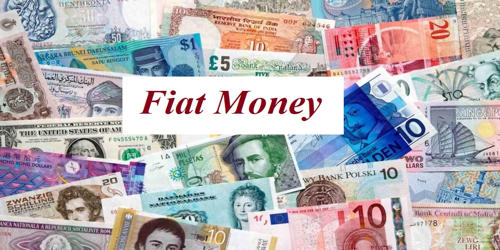Account Opening Procedure
The relationship between banker and his customer begins with the opening of an account. Initially all the accounts are opened with a deposit of money by the customer and hence these accounts are called deposit accounts.
The deposit liabilities of a banker are classified into two categories:
- Time liabilities or term deposit
- Demand liabilities or demand deposit
Time liabilities or term deposit:
Term deposits are included all those deposits which are deposited with the bank for a fixed period specified in advance such as fixed deposits or ten deposits. NCCBL provides different types of term deposits service to their customer such as-
- Fixed Deposit Receipt (FDR)
- Sanchay Patra
- Short Term Deposit (STD)
- Barrier Certificate Deposit (BCD)
- Special Saving Scheme (SSS)
Fixed Deposit Receipt:
Fixed deposit accounts are repayable after the expiry of the predetermined period fixed by the customer. The period of the FDR ranges from three months to one year. Longer the period, the rate of’ interest is higher. Amount of FDR is payable once a time. If the client does not withdraw the amount and give’ further instructions for renewal within one month from the date of maturity, then the FDR account would get renewed for a further three months and the rate of interest would prevailing rote for fixed deposit.
Rate of Interest on Deposit offered by the Bank
| Types of Deposit | Rate of Interest (0/0 per annum) |
| •FDR for(1/ 3/6/12) months | 12.50% |
| •Short Term Deposit | 6% |
| •Instant Earning Term Deposit | 11% |
| • Savings Bank Deposit | 7% |
| • Special Deposit Scheme | 12% |
| •Current Account | Nil |
These deposits are made for a fixed period specified in advance. The bank doesn’t
maintain cash reserve against these deposits.
- Here we will discuss four steps:
- Opening of FDR
- Loss of FDR
- Closing of FDR
- Different types of payment procedure
Opening of FDR:
The depositor has to fill in an application form wherein he mentions the amount of deposit. The period for which deposit is to be made and the name in which the fixed deposit receipt is to be issued. In case of a deposit in joint names, the banker also takes the instructions regarding payment of money on maturity of deposit. The banker also takes the specimen signatures of the depositor(s). A FDR is then issued to the depositor acknowledging receipt of the sum of money mentioned therein. It also contains the rate of interest and the date on which the deposit will fall due for payment.
Closing of FDR: If a FDR holder wants to take interest after maturity, banker should consider the following rates:
- There is an access duty rate for different deposit amount-
| Category of deposit | Access duty (Tk/-) |
| Up to 1,00,000 | 120/- |
| Up to 10,00,000 | 250/- |
| Up to l core | 550/- |
- Tax deduction rate is 15%
- Process to know interest rate of any matured FDR:
Fixed deposited amount=”X”
Process to know interest rate of any matured FDR= (“X” x interest rate) x 15% tax deduction- access duty
Depending on clients requirement whether they want pay order, cash or cheque banker will prepare a voucher.
Different payment procedure:
- Payment on before maturity: It may be happened that a client who has a three months basis FDR for one year, wants to close his/her FDR in 7th month. In this situation client will get 6 months interest from his deposited amount.
- Payment on death/ deceased account: If a FDR holder die before closing re FDR, then- Nominee can get the deposited amount with interest, or by succession certificate FDR holder’s family can get the money (here court will decide who will get how much)
- Interest on overdue deposit: A banker is legally not bound to pay interest on fixed deposit after its maturity. However, according to the directives of the Bangladesh Bank (BB), the bank at its discretion shall pay interest for overdue period on such deposits subjects to the following conditions:
- The deposit is renewed with effect from date on which it matured for payment. The rate of interest allowed for such period does not exceed the rate of interest applicable to the period for which deposit has been renewed.
Loss of FDR: If the FDR holder lost his/her FDR block following process s/he has to take:
- First he/she will do G.D in the police station.
- H/O will send this information to every branch
- If the banker doesn’t find any discrepancy then a duplicate copy of the FDR will be given to the FDR holder.
- FDR holder will also sign in a bond where it is written that if s/he fined their FDR receipt later they can’t claim for it.
- Write an application to the bank to inform it.
- Branch will inform it to the H/O
- Branch will give reply to this letter
Short Term Deposit (STD)
It is similar to Current account. Main difference between CD account and STD is STD a/c holder doesn’t get any interest on below 10 lac taka and get 4% interest over 10 lac or above amount in a daily basis.
Barrier Certificate Deposit (BCD)
It is another kind of deposit account. Here verification is less important as it is highly emphasized in FDR. Bank is bound to give money, which will carry the BCD block. Interest of BCD is calculated when a person deposit the money or at the beginning. (Principal * 100)/(100 + Rate of interest)=(1,00,000 * 100)/(100 + 8.50%)= 92,165.89 Client will give Tk. 92,165.89 to the bank and after one year bank will return Tk. 1,00,000.
Special Saving Scheme (SSS):
A SSS customer has to deposit fixed amount of money each month for a definite period of time, normally for 5 to 10 years.
A depositor can open a SSS account for deposit of Tk., 500/-, Tk.1000/-, Tk. 2,500/-, Tk. 5,000/-, Tk.10, 000/- etc in each month. The depositor has to deposit the required amount of money within 10th day of each month. Customer may deposit his money either in cash or cheque. The depositor can select more than one nominee for this account. A depositor can withdraw the total amount of deposit with interest at a time after a specific period of 5 or 10 years. The rate of installment (SSS) at 12% (5 years)& 13%(10 years)
















